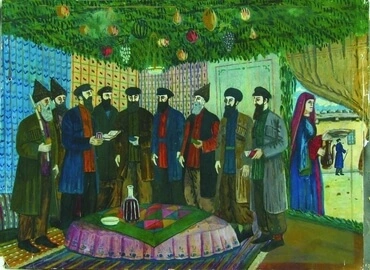Arcana Coelestia # 145
145. In the Word too 'name' means the essential nature of a real thing, and 'seeing and calling by name' knowing characters, as in Isaiah,
I will give you the treasures of darkness and the hoarded riches of secret places, that you may know that it is I, Jehovah, the one calling you by name, the God of Israel. For the sake of My servant Jacob, and of Israel My chosen, and I have called you by name, I have surnamed you, but you do not know Me. Isaiah 45:3-4.
Here 'calling by name' and 'surnaming' mean knowing his character beforehand. In the same prophet,
You will be called by a new name which the mouth of Jehovah will declare. Isaiah 62:2.
This stands for his becoming a different person, as is clear from what precedes and what follows these words. In the same prophet,
O Israel, fear not, for I have redeemed you, I have called you by your name, you are Mine. Isaiah 43:1.
This stands for knowing character. Again in the same prophet,
Lift up your eyes on high and see; who created these? He who brings out their host by number; He will call them all by name. Isaiah 40:26.
This stands for His knowing them all. In Revelation,
You have a few names in Sardis, who have not soiled their garments. He who conquers will be clad in white garments and I will not blot his name out of the book of life; and I will confess his name before My Father and before His angels. Revelation 3:4-5.
Elsewhere in the same book,
Whose names have not been written in the book of life of the Lamb. Revelation 13:8.
In these places 'names' is in no way used to mean names but people's characters. Nor in heaven do they know anyone's name, only his character.
Keep

Keeping" in the Bible generally concerns the actions of life, though in some cases it can mean holding something away from the activities of life to safeguard it. By far the most common use of "keep" is connected with keeping the Lord's commandments or keeping feast days or rituals. These all mean putting true ideas from the Lord into action in life; simply knowing them or remembering them is not enough. In a deeper sense, it means worshiping the Lord, since living life according to His leading is the ultimate act of worship. When its not possible to act from the Lord's commandments, "keeping" represents remembering and safeguarding those true ideas so that they can be put into practice eventually.






